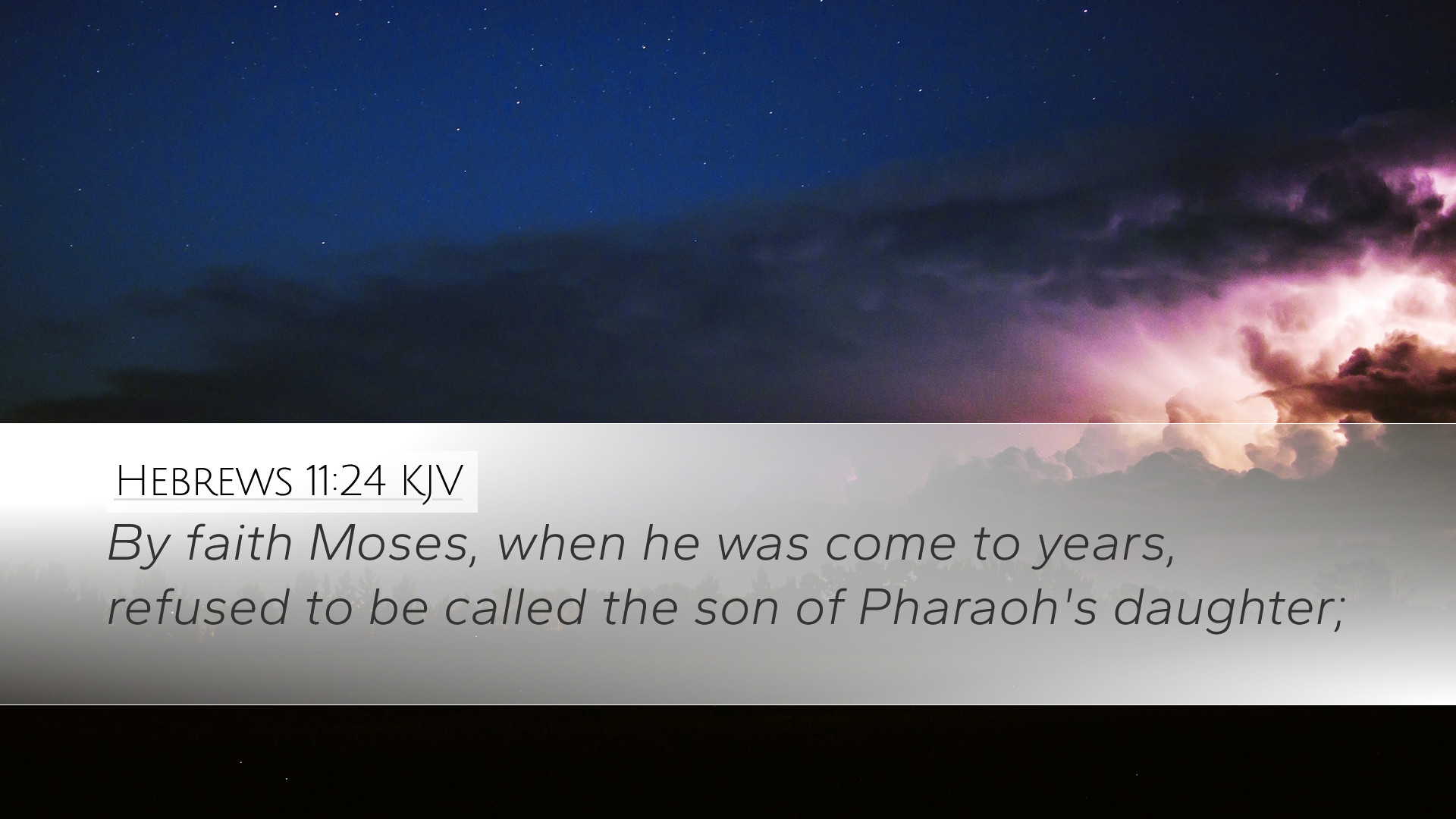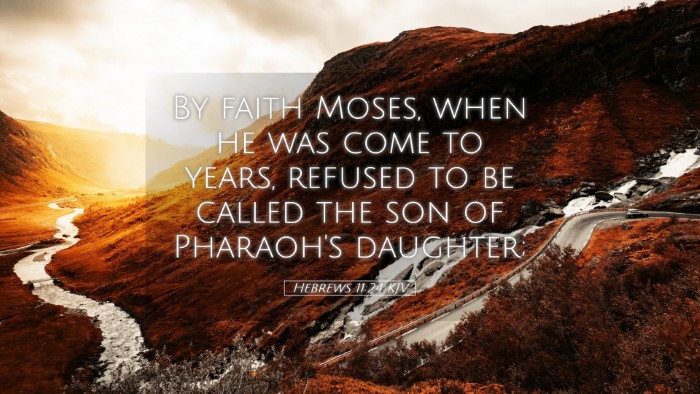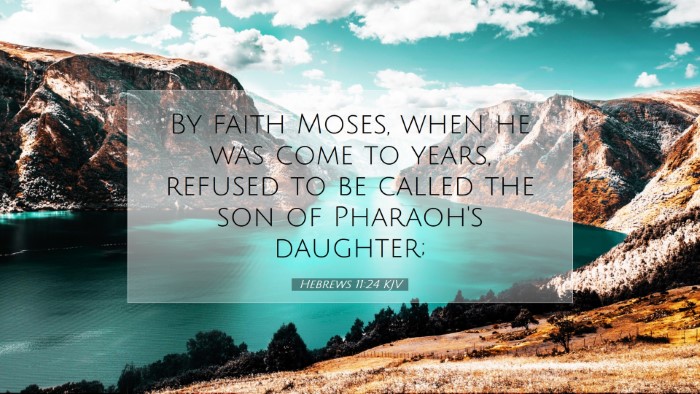Hebrews 11:24 - Commentary Overview
Hebrews 11:24 states:
“By faith Moses, when he was come to years, refused to be called the son of Pharaoh's daughter;”
This verse marks a significant turning point in the narrative of Moses and serves as an important lesson on faith and identity. Below, we explore insights drawn from various public domain commentaries to provide a meaningful analysis for pastors, students, theologians, and Bible scholars.
Faith and Decision
Matthew Henry comments on the profound nature of faith exemplified by Moses. He highlights that Moses, when he reached maturity, made a conscious decision to reject his privileges as the son of Pharaoh's daughter. This act illustrates an authentic expression of faith where Moses prioritizes allegiance to God over earthly security and status. Faith, according to Henry, compels believers to act in accordance with their beliefs, reflecting a deep conviction that informs personal choices.
Adam Clarke further elaborates on the identity crisis Moses faced. He notes that the decision to refuse the title of Pharaoh's daughter was not just a rejection of social status, but an embrace of his true identity as part of God's chosen people. Clarke emphasizes that this decision is rooted in a profound understanding of God’s covenant with Israel. Moses’ choice embodies the idea that true identity is found not in worldly accolades, but in alignment with God’s purposes.
The Role of Suffering
The verse implies that Moses was aware of the consequences of his decision. Albert Barnes asserts that Moses understood that refusing his royal standing would lead to potential suffering and persecution. However, Barnes posits that Moses recognized the fleeting nature of earthly pleasures contrasted with the eternal glory offered by God. This theme resonates throughout Hebrews 11, where faith often leads to trials and tribulations. The suffering that Moses chose serves as a reminder that the path of faith is not always comfortable, but it is ultimately rewarding.
Spiritual Legacy and Leadership
Henry notes that Moses' refusal to accept his position in Pharaoh's household laid the groundwork for his later role as a leader of Israel. By identifying with the oppressed rather than the oppressor, Moses paved the way for divine intervention in the Israelites' plight. This illustrates that true leadership arises from a commitment to justice and righteousness, aligned with God’s will. Moses’ example serves as a call for contemporary leaders to evaluate their priorities and the impacts of their choices on their communities.
Faith in Action
Hebrews 11:24 calls believers to a practical application of faith. Clarke emphasizes that faith is not merely an internal conviction but should manifest in our choices and actions. The refusal of Moses is seen as a defining moment where faith translated into concrete decisions. In this light, the commentary encourages believers to consider how their faith compels them to act in their own lives, especially when faced with challenging choices that may require sacrifice.
Reflection for Today's Believers
The insights offered by these esteemed commentators encourage a deeper reflection on the themes of identity, suffering, and leadership. Today, believers are challenged by the same questions Moses faced. Barnes invites readers to consider what identity they embrace and whether they too are willing to make sacrifices for their faith.
- Identity: Are we willing to reject worldly identities to fully embrace our identity in Christ?
- Suffering: Are we prepared to endure hardship for the sake of the Gospel?
- Leadership: How can we be leaders committed to the principles of justice and righteousness in our communities?
Conclusion
Hebrews 11:24 invites readers into a profound exploration of what it means to live by faith, mirroring the commitments of Moses. The combined insights of Henry, Barnes, and Clarke enrich our understanding, reminding us that faith influences our decisions, challenges our comforts, and shapes our legacy. As modern-day followers of Christ, may we find the courage to make choices that reflect our faith, for in doing so, we step into the narrative of God's unfolding story.


